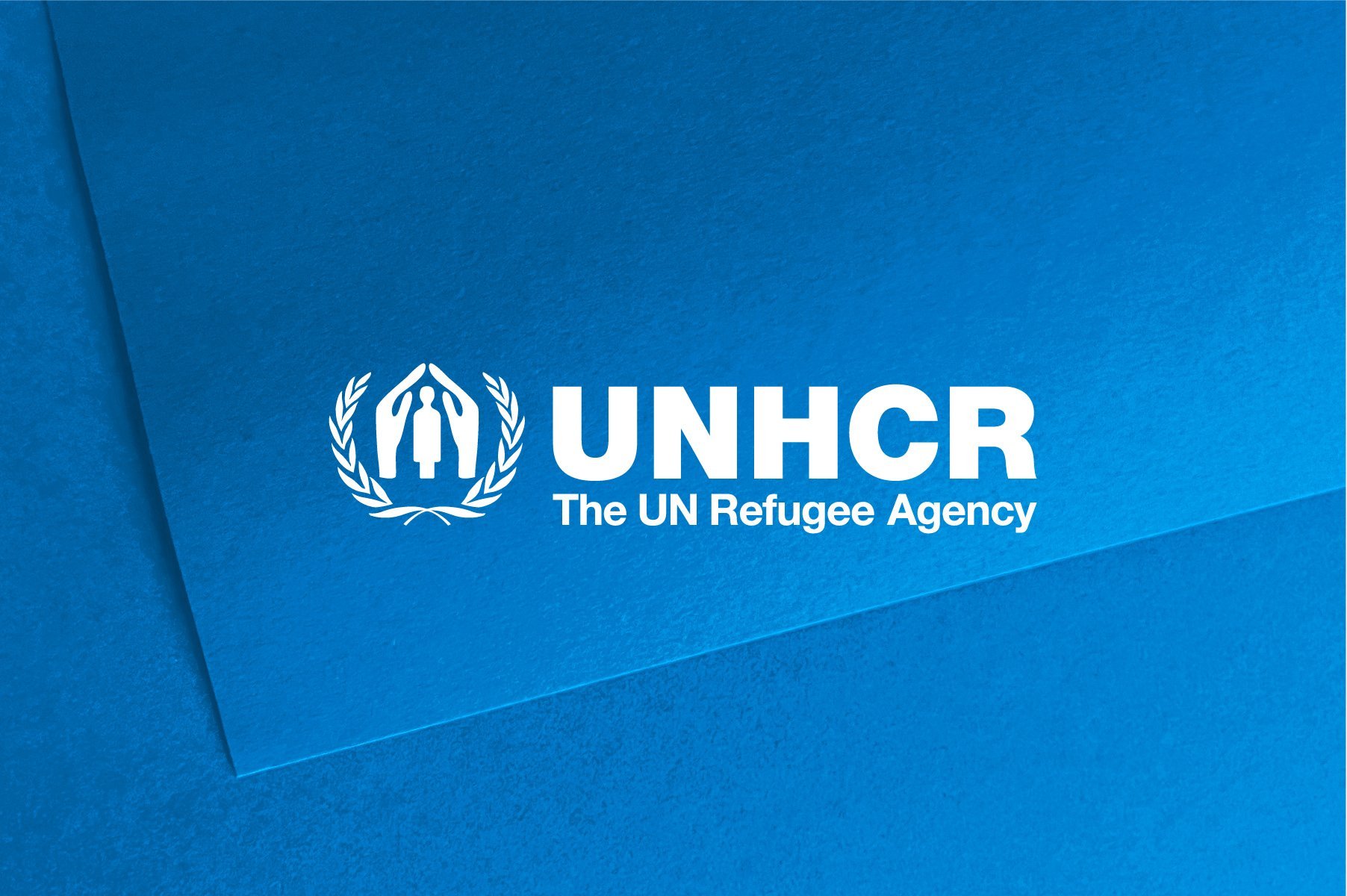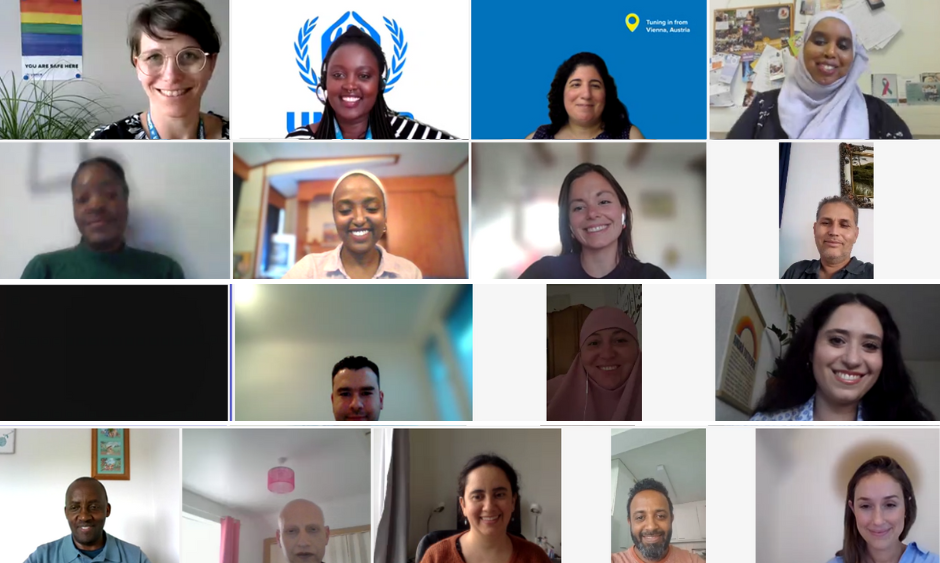"I want to change perceptions of what a refugee is and can be"
"I want to change perceptions of what a refugee is and can be"

“In 1985 my family moved to Ireland. We had to leave Iran due to religious persecution. We are members of the Bahá'í Faith, a religion that was founded in Iran in 1844. Since the foundation of the religion, and until the present day, members of the Bahá'í Faith have been persecuted in Iran.
The persecutions became worse after the revolution in Iran in the 1980s – there was imprisonment, torture and even executions of members of the Bahá'í Faith taking place.
At that time I was around 13 years of age. My mother was a primary school teacher and my stepfather was a veterinarian. Both of them lost their jobs and their lives were in danger. So we moved from the provincial city where we were living to the capital city, Tehran, to try to hide in the larger population there. However, things became more and more difficult and after two years in Tehran, it became too dangerous to stay in the country. So, in order to save our lives and also to provide us with a better future and opportunities somewhere else, my parents made the decision to leave Iran.
So, we left Iran and fled to Pakistan, where we lived for two years under the protection of UNHCR. We were registered as religious refugees and waited there to be resettled to a safe third country. Initially, it was expected that we would go to the US, one of the three countries that was accepting Bahá'í refugees from Iran at that time, but in 1984 the Irish government, in collaboration with the Irish Bahá'í community, facilitated 26 Bahá'í refugees to resettle in Ireland. My parents decided to take the opportunity and they have never looked back.
When we arrived in Ireland, the whole group of 26 stayed in Dublin for a few days. In consultation with the Bahá'í community it was soon decided that each of the families would move to different parts of Ireland to ensure good integration into the Irish community. So, in December 1985 we moved to Sligo, and in January 1986 I started Secondary School in the town. That was quite a strange experience. When we were waiting for resettlement in Pakistan we couldn’t access education, so our parents home-schooled us and motivated us to study for ourselves. It was difficult in the beginning to adapt to the new school system here. Nevertheless it had to be done and I think it is better to be thrown into the deep end than to wait and not do anything. Everyone was really helpful and kind. Even though we were at one of the biggest schools in the region there were only two other boys from another country there. Today, schools in Ireland are more diverse and colourful, but at that time it was very unusual, and everyone wanted to know who we were and why we came to Ireland.
“At that time, in the 1980s the Irish economy was struggling and many people were leaving the country, so they were curious about why we moved to Ireland.”
After I completed Secondary School in Sligo and felt comfortable with the language I was accepted to Maynooth University where I studied Science, majoring in Biology. I graduated in 1989 and started my PhD studies with one of the Professors there. One year later he became Professor of Biochemistry in UCC and I moved with him to Cork, where I completed my PhD studies in 1997. My PhD research focused on how cells live and die, particularly on understanding the molecular machinery of cell death. I was especially interested in this, as cell death is a normal process, all cells have a finite lifespan. However, in certain diseases such as cancer, cells don’t die when they’re supposed to. In other diseases such as neurodegenerative diseases, cells die faster than they’re supposed to. So if we can understand how the death machinery works then we can manipulate it to control the cell fate. My current research looks at how cells respond to stress and at a phenomenon called apoptosis or “cell suicide”. When there is too much stress the cell actively kills itself. We want to understand how we can reduce or increase the threshold for activation of cell death. In the case of cancer we would reduce the threshold so that the tumor cells kill themselves. Currently, we are studying how to treat a specific, very aggressive form of breast cancer.
I was always interested in Biology, and it was often due to inspiring Professors and mentors that my interest and passion for research in that area was fostered. Cell death was quite a new field when I got into it and though a lot has been learned over the last twenty years, there are still a lot of things to be discovered.

I met my wife while I was studying in Cork and we got married in 1997. We met in the lab and she is one of my main collaborators to this day. After we got married we went to Sweden for about two and a half years, to work at the Karolinska Institute, a major medical research institute in Europe. We always intended that we would move back to Ireland, and went to Sweden for research purposes and to develop our careers.
In 1999, NUI Galway advertised a number of academic positions in Biochemistry, and both my wife and I got jobs here. I started as a lecturer, five years later I was promoted to Senior lecturer, two years later to Professor, one of the quickest promotions at this University. A few months after that I was asked to be the Head of the Department of Biochemistry. In 2010 I also established a research centre in the same University.
“Focusing on cellular stress and its link with cell death has been the area where we have made major impact in the last few years and now we are trying to develop drugs to target the key proteins that influence how cancer cells cope with stress, so that lower levels of chemotherapy could be used to kill the tumor cells.”
We are working closely with the University Hospital Galway and with international research colleagues and we also have collaborations with many companies worldwide. Our own work here at the NUI Galway over the last 19 years has generated a lot of intellectual property, so much that we have been able to set up three start-up companies.
Apart from being a researcher I also feel that I have a role as a mentor. As academics it is our role to educate and mentor our students, the next generation of scientists, to not only become good scientists but also to become good citizens, doing meaningful and responsible science.
“When I hear the word refugee, I don’t think about myself actually being one. The term puts a label on people, but there is so much more to every person, we should look past the label and consider their abilities.”
The training, education and opportunities provided to me have helped me to develop as a scientist, academic and cancer researcher and have put me in a unique position to serve Irish society. I have been able to represent Ireland at scientific conferences and I believe I have served as an ambassador for Irish science. I want to change perceptions of what a refugee is and can be.”
As told to Svenja von Reuss





